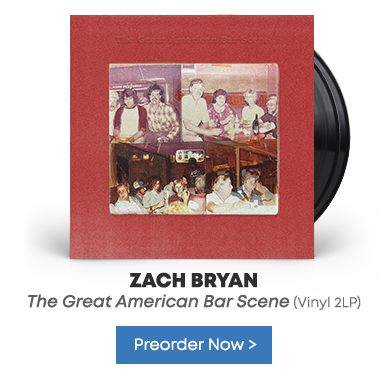Glen Campbell's death this week wasn't unexpected. The 81-year-old country-pop legend had long been battling Alzheimer's, and, until very recently, continued to perform. Earlier this year, he even released Adios, an album that served as a bittersweet end-of-the-road statement. It's unclear just how involved Campbell was in the process. But over the past five-plus decades, Campbell epitomized the very definition of a crossover artist. More regal and smoothed-out than, say, Johnny Cash, Campbell approached country from the standpoint of a pop classicist. Those lucky enough to see him perform no doubt glimpsed his prowess with the guitar. We remember the multi-faceted star – Campbell made a name for himself in music, on television, and in films – with five of his greatest songs.
"By the Time I Get to Phoenix"
Penned by master pop songwriter/composer Jimmy Webb, this tune chronicles one of the most cruel and cold-hearted breakups imaginable. A man leaves a note on the door of his significant other, and then hightails it across state lines while picturing the various reactions she'll have to his departure. There's no remorse. "I've left that girl so many times before," sings Campbell, delivering the line with such steady calmness he's practically placing the blame on her for thinking he'd stick around. The romantic string arrangement, as well as the caressing orchestral flourishes, doesn't radically differ from an earlier version by Johnny Rivers. Campbell, however, slightly slows down the tempo. Couple the pace with Campbell's stately guitar strumming and vocals, and the overwhelming sense is one of adoration. The lyrics may be vicious, but Campbell's 1967 take turns the track around, creating a love song about heartache.
"Wichita Lineman"
After hearing Campbell's approach to "By the Time I Get to Phoenix," Webb penned this song for the artist to record. Its themes – desire and loneliness – remain encased in a working-class mystery. Musically, this 1968 gem is country at its most symphonic. Campbell and his band, members of L.A.'s ace session-musician collective the Wrecking Crew, add to the enigma while managing to maintain an ornate, reverential tone. The strings at times are high-pitched, as if to mimic the whine of a utility man connecting to raw telephone wire. The piano furtively bangs out what comes off as Morse code. And the narrator – the lineman of the song's title – longs to hear his lover, or former lover, and appears to be haunted by the pull she has over him. Is he eavesdropping on her phone calls? Or is it simply he sees and hears her in everything he does? We don't know, but Campbell sounds a bit panicked when he sings, "I know I need a small vacation," as if only time and distance can cure his ails.
"It's a Sin (When You Love Somebody)"
The relationship between Campbell and Webb remained fruitful – and continued to evolve – into the mid-70s. Like many songs Webb wrote for Campbell, "It's a Sin (When You Love Somebody)" marries a few verses without a clearly defined chorus. Offering a light narrative that captures an emotional state rather than a direct plot, "It's a Sin (When You Love Somebody)" ropes in a few nods to religion and brings in a gospel-infused choir, pairing redemptive messaging with an anxiously beating piano. The old adage "it's better to have loved and lost than never to have loved at all" might get explored, but Campbell and Webb don't seem sure. Sins, such a cheating and lying, get a pass from the lord above, but love and heartache are not so easily wiped away. Is it affection or an affliction? Either way, it's too hard to resist.
"Rhinestone Cowboy"
In 1975, Campbell's music career had survived several ups and downs. But just about every time the artist faded from the charts, he found a way to reclaim his prominence. After hearing this 1974 song from Larry Weiss, Campbell allegedly identified with its themes of perseverance and survival. He recorded a rather triumphant version in 1975. Ultimately, it became one of his biggest crossover hits and signature songs. Lyrics hint at having been down and out, and nod to the endless "hustle" of showbiz, but the piano features a buoyant strut and the strings convey an angelic uplift. By the time Campbell gets to the chorus, envisioning himself dressed to the nines and the star of a rodeo, we're all cheering for the comeback kid.
"Highwayman"
Once again a collaboration with Webb, this 1979 tune puts a greater emphasis on Campbell's dexterity with the guitar and opens with dark-hued spiraling notes. The latter lead into a sturdy, hurried vocal performance, as Campbell looks back on a life of hard living. Or, rather, various lives. The song traces the work a highwayman, dam builder, and sailor, but never idealizes the blue-collar life. When the strings hit, they do so with a melancholic lilt. It's hard to discern whether this is an ode to the common man or if all these workers are essentially the same soul, with the narrator doomed to live multiple lives on life's fringes. The final verse hints at the latter. Campbell sings of ascending to the heavens, wondering if he'll come back as another highwayman or perhaps a drop of rain. "But I will remain," he sings, "and I'll be back again and again and again."
Photo credit: Capitol Photo Archives
11th Aug 2017




































